- Home
- Lynne Connolly
Boundless Page 5
Boundless Read online
Page 5
Ruffled from her encounter with the devilish duke, Livia hurried across the hall to the ladies’ room and took five minutes to compose herself. She needed more, but she’d make do. Smoothing her hair back, twisting a curl around her finger to tidy it, and settling her skirts gave her a moment alone to set herself to rights.
Rightly she should object to the ruffian grabbing her and kissing her whenever she came close, but in all honesty she could not. She enjoyed it. Not that she would admit that to anyone, least of all the Duke of Preston.
As she patted her hair into place, standing before the mirror lit by branched candles either side, she could not escape the fact that she was deeply attracted to his grace, whose first name, she had learned, was Adrian. She would have to get over it, that was all.
But a sneaky little voice deep, deep inside asked, Why not? You’re never going to marry, so why not take him as a lover?
Never could she have imagined doing that again. The first time had ended in total disaster.
Turning, she presented her profile to the mirror. Satisfied with what she saw, she left the room, making her way back downstairs.
The main room blazed with the light from a hundred candles, the scent of beeswax heavy in the air. Camphor, from clothes hastily brought out of storage and lavender sent occasional messages to her nose. Familiar, almost comforting smells. But she couldn’t get that new aroma hot, hard male out of her senses. When he drew her close, his musky, clean scent pulled her closer, surrounded her with an odd feeling she didn’t quite have a word for. Attraction, desire, perhaps, all those things she’d deliberately put away ten years ago.
Glancing around, Livia couldn’t see her family. They had probably moved to the supper room. Although the quartet was still playing, the room was not as full as it had been when she left.
Spotting her cousin, Livia glided over to him. “Spying on me, Ivan?”
Ivan gave her one of his charming smiles. “Why on earth would you think that? Considering this is the only society event of any significance tonight, is it surprising that we end up in the same place?”
Flicking out her fan, she put it to use, setting up a breeze that reached Ivan. Proverbially tall, dark, and handsome, Ivan showed no sign of discomfort, even though she’d aimed the waft at his eyes. “I’ve not known you avid to attend balls.”
Ivan pulled a face. “Not in the season, certainly, but this is more of an entertainment and less of a chase to the death.”
“Marriage is death?”
“For the wrong couple, very much so. For the right couple, not so much.”
He stepped aside, giving her a full view of the man standing just behind him. “I believe you know Sir Jeffrey Creasey?”
Livia’s blood ran cold. Yes, she knew him.
Lowering her head, she dropped into a curtsy, giving herself time to get her breath back. “Yes indeed. I have not seen you this age, sir. How do you do?”
“Better now I’ve seen you, Lady Livia.” Dressed in a blue coat with gold braid, Sir Jeffrey was just as handsome as she remembered.
His responding bow gave her a chance to regain her composure, what was left of it. She forced herself to lift her gaze, masking her expression with a glacial stare. “Indeed. How is your lady wife?”
“Ah.” The drop in his voice was echoed by the droop of his mobile lips. Lips that Livia knew well, that she had thought she’d forgotten. “Sadly, my dear Maria died last year. She followed the drum to the last and suffered for it. She caught a fever.”
“I’m so sorry. Poor Maria.”
“Indeed. Thank you. I lost the taste for the army after that. After my father died I sold out. I’m back for good, newly elected to Parliament and here to attend the House.”
Poor Maria. She would have loved a visit to London. She had adored Jeffrey, chased him with a doggedness he had not deserved, nor discouraged. But he had eyes only for Livia at the time.
“You inherited your father’s seat in Parliament?” She couldn’t think what to say. And because Ivan didn’t know, he thought he’d done her a favor by reintroducing them. Small talk seemed the safest way, until she could escape.
“I did. Of course we had to go through the formality of elections, but yes, to all intents and purposes.” Supremely confident, he gave her the full force of his dazzling good looks. At least they had no effect on her anymore.
“I’m afraid I have not seen your family for some time,” she said. “We did attend your father’s funeral.” Which was more than he did, claiming the press of events abroad. And yet here he was now.
“A state of affairs we can now rectify.” Sir Jeffrey smiled broadly, as if conveying a favor to her. “My father has gone, and I am now the squire. We are once more neighbors. I look forward to seeing more of you.” His smile deepened, as if for her alone. “Perhaps we can regain our youthful friendship. I’ll be returning to the country soon, and then we will be but a few miles apart.”
Livia couldn’t welcome that because of what had happened between them. She had prayed in church every Sunday that she never saw him again. She had good reason.
Somewhere in the world, their son existed. Because of their painfully brief and youthful affair, a child lived.
Chapter 3
Adrian instinctively ducked as a Meissen monkey flew past his head. The streak of white porcelain startled a passing horse hauling a hackney cab, halting long enough to make its driver curse and snake his whip over the creature’s head. The benighted porcelain beast shattered on the cobbles of King Street.
Adrian dusted his hands. At least he would not have to enter that place again. Finding Ophelia in the arms of her latest lover had not concerned him one bit. The lady needed to make a living, after all. But having her throw curses at him, then, once her lover was out of sight, throw herself at him and beg him to take her back, that had unnerved him.
After hastily explaining that he had lost a piece of family jewelry in the front parlor, she’d actually helped him to search, until he’d let fall that the brooch belonged to a lady. That was a mistake.
If he’d cared more about what she thought, he’d have seduced her and let her new lover see how to control this woman, but the thought of touching her again did not appeal, so he’d let her shriek and hurl ornaments at him.
In any case, the lover couldn’t wait to quit the building once he’d seen an example of her tantrums.
Adrian could not find it in himself to be sorry. Except he had not found the brooch. He was certain Livia had not dropped it there.
Which left the orphanage. Not looking forward to the visit, but determined to get it over with, he strode around the corner into a smaller street, and found the place easily enough from the tarnished plaque outside. Brownlow Street Foundling Hospital, it read.
Since Thomas Coram had set up his foundling hospital, the fashionable world had seen the rescuing of indigent children as a worthy cause and one that put them in a good light. Several had sprung up, though this example did not appear to be the best example of its kind. The tall building was blackened with soot, the mortar falling out from between the once-red bricks. The windows were bare of covering, and the shutters fastened back against the wall did not appear to have been put to use for some time, slats broken and their fastenings rusting.
Still, good people often worked tirelessly, despite their lack of funds, to do the best they could for the children in their care. Even a cynic like Adrian understood that. He plied the knocker. Then used it more vigorously again.
After a good five minutes the sound of bolts being drawn came from the other side of the door. It creaked open, revealing a small, towheaded child dressed in a pair of filthy breeches and a shirt worn so thin Adrian could see his skin through the grubby linen.
“Sir?”
“Can I speak to whoever is in charge?”
“’Oo’s that?” A rough, calloused hand shoved th
e boy aside and a man stood in the space the child had occupied. His simple, but good clothes were in stark contrast to the boy’s worn garments. He folded his arms. “Well?”
When in this part of London, Adrian rarely wore his small sword. The weapon marked him out as an aristocrat, since only they were allowed to wear them in town. But once he clapped eyes on this ruffian, he was glad of the useful knife in his coat pocket. His hand curled around the handle as he gave the man an easy smile. “Adrian Sterling.” Best not to brandish his title either. The man would turn nasty in a minute. Either that or obsequious and Adrian was in no mood for either. “I’m a neighbor, of sorts. I wondered if your children had seen a skirmish in King Street the other day. Someone recognized a boy from your house.” He skirted the truth. “My lady friend had her purse cut and a brooch stolen.”
“Yes?” He raised his chin, his jowls quivering.
“She is offering a reward for its return. At least the brooch. The purse she knows is lost.”
“What kind of reward?”
“Five pounds.” He amended the amount when the man sniffed. “Guineas.”
“What does this brooch look like? And ’oo did yer see? Got a name?”
Adrian shook his head. A noxious odor emanated from the house. He guessed the unfortunates here did not live in particularly salubrious surroundings. The reward would go straight in this person’s pocket, which made him disinclined to give it. “No name. My lady friend was attacked by small children.”
“My children are good. They’d ’ave been in their lessons or in bed.”
Adrian doubted that, but wisely said nothing. “Maybe the lad who took the brooch was known to your children.”
The man didn’t answer immediately. He stared at Adrian, as if assessing him. “’Appen.” He sniffed and drew his sleeve across his nose, leaving a streak of brown slime behind. Snuff would do that, especially the cheap kind. “I’ll arsk. Where can I find yer?”
Not at the house in King Street, that was for sure. “I’ll find you.”
“Is it the brothel at number twenty?” The man eyed him shrewdly.
As was his wont, Adrian was dressed plainly, but in good quality cloth and spotlessly clean linen. Unlike others, he didn’t always wear his rank on his back. He could pass muster as a customer at a well-to-do brothel. He nodded. “You can get in touch with me at that address.” He knew the place, although brothels hadn’t seen him as a client since his early years on the town. Adrian preferred to keep a mistress, someone he could converse with as well as roger, and someone less likely to pass on anything unpleasant.
He could pay the madam a retainer to hold the brooch for him if it appeared. Somehow, he doubted it would. If he offered more than his already generous offer, that would cause suspicion. The man standing before him on the worn step would believe there was something special about the brooch, and then Adrian would never get it back.
“Chances are a gang took it. You’ll never see it again.” The man smirked, revealing a mouth where teeth were a novelty.
Adrian kept his temper. Barely, although the heat of it simmered inside him. “I’d appreciate it. It’s about an inch wide, and it has initials engraved on the front. Not a valuable thing, but it was my friend’s inheritance from her grandmother.”
Not for the first time he wondered why a small gold brooch could mean so much. Livia’s grandmother on one side was a duchess, on the other a marchioness. Both had collections of jewelry. Surely she could claim another piece as a memento if she wanted one? What was so special about this piece?
He showed none of his doubts to this man. Merely thanked him and stepped back.
“Do yer want ter come in and meet the children?” The man gave him a sickly, near-toothless smile.
“Not today, but thank you.” If he stepped inside that house, God knew if he would come out again. This was an orphanage in name only, he’d wager his last guinea on that. They’d strip him, beat him, and throw him in the street. If they knew who he was, they’d tie him up and hold him to ransom. If they knew he had a purse of golden coins tucked snugly in the inner pocket of his breeches his life wouldn’t be worth a penny.
So he walked away, trying to keep his step rapid, but not brisk. He’d call at the brothel and give the madam a retainer to hold the brooch for him if it turned up. He’d rather give his money to a woman earning a more honest living than this man. One way or another he would get that brooch back, if it was humanly possible.
He had just turned the corner when the scampering of feet behind him made him spin around, ready to confront whoever was chasing him.
There stood the small boy who had opened the door. Wiry, with unkempt, overgrown hair, the lad met Adrian’s challenging stare boldly. “You said five guineas?”
“I did. Why?” He took a sideways step, putting his back against the wall. Even small boys had accomplices and they could wield a knife better than most grown men.
Glancing down, the boy shuffled his feet on the cobbles. “I might ’ave seen it.”
“Do you have it?”
Grimacing, the boy shook his head. “But I might have information for you.” Although he slipped into the vernacular, the lad was obviously making an effort to speak well. That alone gave Adrian pause. He could use this child.
“’Ow much is it worth?” the urchin demanded.
“That depends on the information.” He studied the lad closely. The child had obviously made an effort to clean himself, his face shiny but a little streaked with dirt. Adrian liked his initiative in coming forward and his swift appraisal of his appearance.
The youth’s guileless blue eyes met Adrian’s not-so-guileless ones. “A guinea? I can’t get you the brooch, but I can tell you what ’appened.”
“If it’s worth my while you’ll get your guinea. My lady friend is upset about losing her brooch. It’s not worth five pounds but it was her grandmother’s.” If the boy had it, he would see that he’d get more by giving it up than in selling it in any pawnshop.
The boy scratched his head. No doubt his scalp was alive with vermin. “I saw a man. Really well-dressed.” He passed a critical gaze over Adrian, hat to shoes and back to his face. “Better than you. Flashier than you, any’ow.”
“What else?”
“I didn’t see ’im again, but it was our boys went out to get it on ole Smiffy’s orders. So if it went, they got it.”
“Did you go out with them?”
The boy shook his head. “I was doin’ somethink else. Cookin’.”
That information brought Adrian closer to the brooch. “Can you find out what the man’s name was?”
He shook his head again. “Smiffy doesn’t write that sort of thing down. ’E talked well. But ’e won’t come back. ’E got what he wanted.”
The boy spoke truth. Why would the man return to risk being recognized? Adrian liked the spark of intelligence in the lad’s eyes. “What’s your name?”
“Mickey. Michael,” the boy corrected himself. “Michael O’Shaugnessy.”
“Your parents are Irish?”
“Were. My da was a sailor. My ma came to London to be with ’im. Sent me to school. But she died, and ’e died, and I ’ad to shift for myself.”
Curiosity drove Adrian to ask, “What is the orphanage like?”
Mickey sniggered. “Orphanage nothing. It’s a thieves’ kitchen. That brass plate is only out there to put people off. And get a few donations from the nobs. Ole Smiffy sends us out thieving every day. We don’t get fed if we don’t take back at least a kerchief.”
Adrian had suspected as much. He ached to get out of this area, and he doubted he could do any more here. “Come on.” He started walking toward Covent Garden. He’d get a cab there and dust this part of London off his feet. “So how old are you, Mickey?”
“Twelve.”
The boy was small enough for
nine, but Adrian wasn’t surprised. Street children were often malnourished, their growth stunted by the lack of good food.
Because he liked the boy and for no other reason, he handed over the guinea. He fully expected the urchin to grab the coin and run off, but the boy continued to skip along, matching Adrian’s easy strides with a fast trot.
Adrian had found that the best way to walk in these streets with no pavements and worn cobbles was to march straight ahead, assuming he was the only person there. People dodged around them, cursing occasionally, but neither he nor Mickey cared about that.
“Can you read, boy?”
“Yes, I can,” the boy said. “I went to school for a whole year. I learned to add up and to read. But I need a bit of time to make it out.”
They turned a corner and entered the piazza. The designers had kept the streets around Covent Garden deliberately winding and narrow, the better to emphasize the space when the traveler finally entered it. They’d meant it for a square of fashionable residences, but society had long moved on, although a few eccentrics still lived here. The streets were a jumble of taverns, coffee houses, private residences, brothels and lodging houses. The square contained ranks of tall, brick-built houses, the piazza in the center a market for the fruit, vegetables and flowers that were driven here every morning from the market gardens ringing the city. At the top lay the church and the Opera House, graciously designed buildings in once-white stone.
As always, crowds thronged the area, but at least they could walk more freely now. Adrian headed for the far side, where a line of chairmen waited to do business. One of those would do, or a hackney if one passed by. At the boy’s words, he’d given up the idea of calling in on the brothel. If someone had paid for the brooch to be stolen, it would never show up there.
An idea occurred to him. “Would you know the man again?”
Mickey nodded vigorously. “Oh yes. Spoke proper, tall, good-looking. Yes, I’d know him anywhere.”
So who would want to get hold of a nondescript gold brooch? What secrets did it hold? It obviously meant a great deal to Livia. She’d been prepared to meet Adrian again in order to get it back. That must have taken a lot of courage, considering what he’d done to her. Her expression had told him even more than her words had. Did someone want to threaten her with the piece, or make her do something in return for the trinket? If he did, Adrian would expect him to make his move soon.

 Boundless (The Shaws)
Boundless (The Shaws)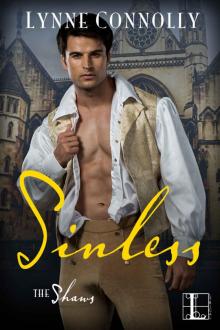 Sinless (The Shaws)
Sinless (The Shaws) The Girl with the Pearl Pin
The Girl with the Pearl Pin Hosts to Ghosts Box Set
Hosts to Ghosts Box Set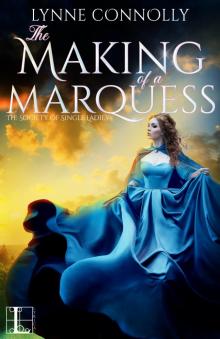 The Making of a Marquess
The Making of a Marquess Boundless
Boundless Beauty of Sunset
Beauty of Sunset Virginia And The Wolf
Virginia And The Wolf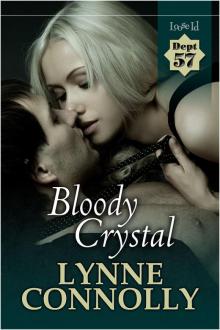 Department 57: Bloody Crystal
Department 57: Bloody Crystal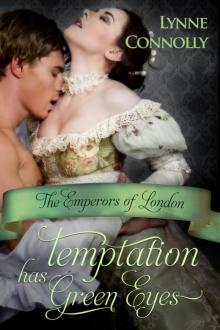 Temptation Has Green Eyes
Temptation Has Green Eyes Forged by Love: Even Gods Fall in Love, Book 4
Forged by Love: Even Gods Fall in Love, Book 4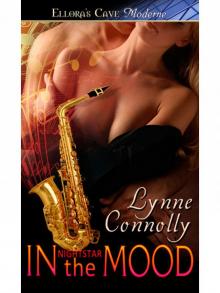 IntheMood
IntheMood Hareton Hall: Richard and Rose, Book 6
Hareton Hall: Richard and Rose, Book 6 ShiftingHeat
ShiftingHeat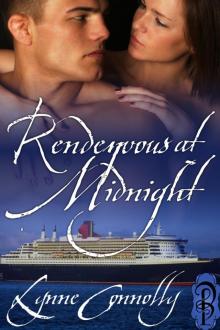 Rendezvous at Midnight
Rendezvous at Midnight Yorkshire: Richard and Rose, Book 1
Yorkshire: Richard and Rose, Book 1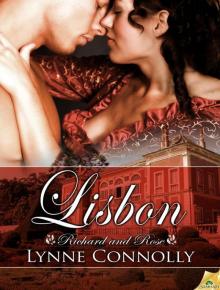 Lisbon: Richard and Rose, Book 8
Lisbon: Richard and Rose, Book 8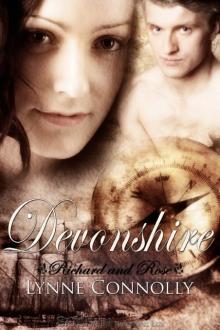 Devonshire: Richard and Rose, Book 2
Devonshire: Richard and Rose, Book 2 Venice
Venice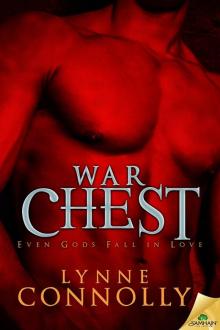 War Chest: Even Gods Fall in Love, Book 5
War Chest: Even Gods Fall in Love, Book 5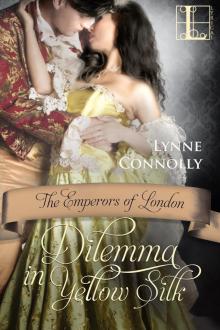 Dilemma in Yellow Silk (Emperors of London)
Dilemma in Yellow Silk (Emperors of London)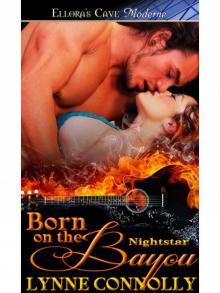 BornontheBayou
BornontheBayou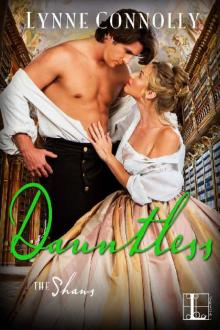 Dauntless (The Shaws)
Dauntless (The Shaws) Brutally Beautiful
Brutally Beautiful Lightning Unbound: Even Gods Fall in Love, Book 1
Lightning Unbound: Even Gods Fall in Love, Book 1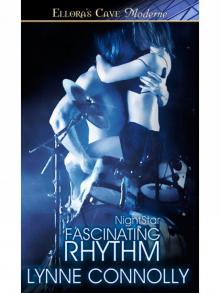 FascinatingRhythm
FascinatingRhythm Fearless
Fearless A Chance to Dream
A Chance to Dream Mad for Love: Even Gods Fall in Love, Book 2
Mad for Love: Even Gods Fall in Love, Book 2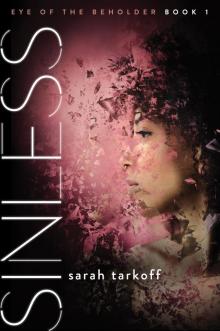 Sinless
Sinless SailtotheMoon
SailtotheMoon Wild Lavender
Wild Lavender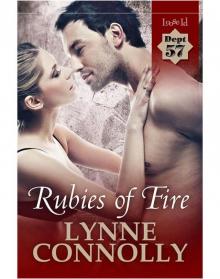 Department 57: Rubies of Fire
Department 57: Rubies of Fire Maiden Lane
Maiden Lane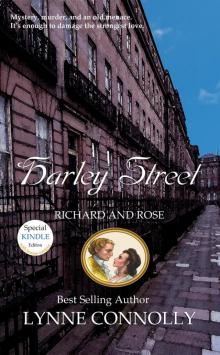 Harley Street
Harley Street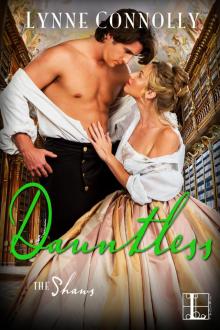 Dauntless
Dauntless NicenEasy
NicenEasy It Started at Waterloo
It Started at Waterloo Temporary Spy
Temporary Spy BorntobeWild
BorntobeWild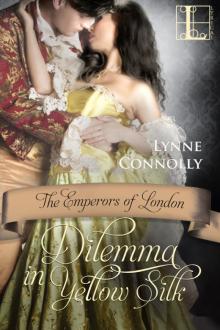 Dilemma in Yellow Silk
Dilemma in Yellow Silk Yorkshire
Yorkshire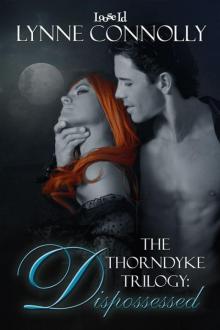 The Thorndykes 1: Dispossessed
The Thorndykes 1: Dispossessed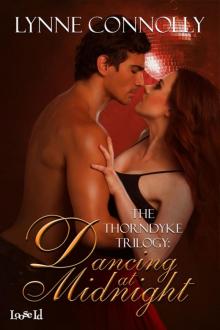 The Thorndyke Trilogy 2: Dancing at Midnight
The Thorndyke Trilogy 2: Dancing at Midnight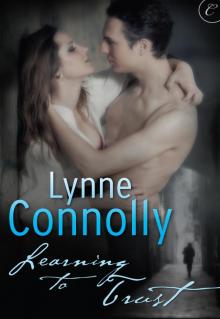 Learning to Trust
Learning to Trust Her Quicksilver Lover: Even Gods Fall in Love, Book 6
Her Quicksilver Lover: Even Gods Fall in Love, Book 6 Loving Lucy
Loving Lucy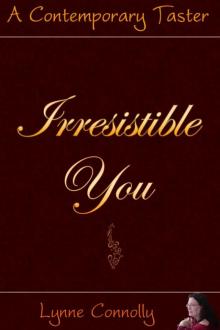 Irresistible You
Irresistible You Arrows of Desire: Even Gods Fall in Love, Book 3
Arrows of Desire: Even Gods Fall in Love, Book 3 Unbroken
Unbroken Devonshire
Devonshire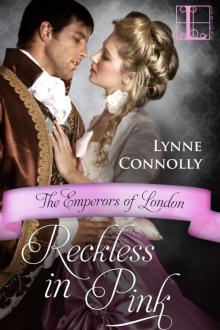 Reckless in Pink
Reckless in Pink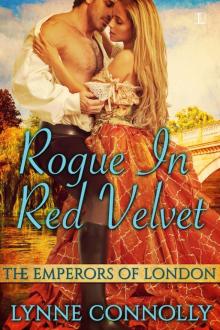 Rogue in Red Velvet
Rogue in Red Velvet